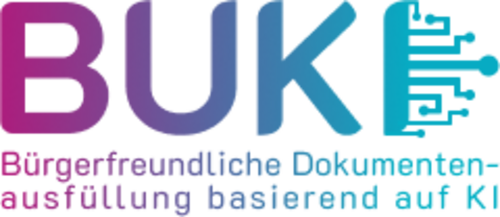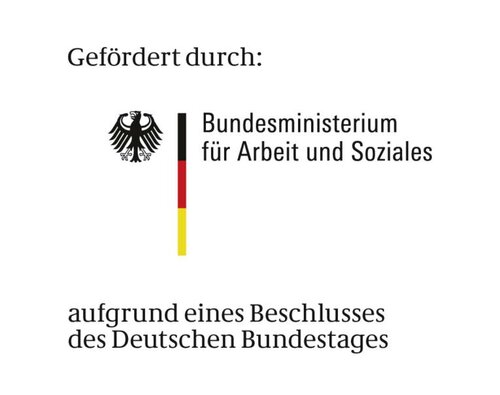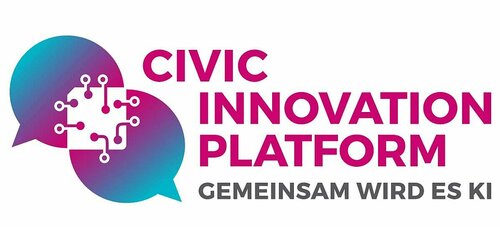BUKI Bürgerfreundliche Dokumentenausfüllung basierend auf KI
Motivation
In the public sector, application forms and documents are often so complex that they are difficult for citizens to understand. Therefore, citizens who rely on city help often have difficulty filling out these forms correctly. As a result, the benefits to which citizens are entitled cannot be granted or can only be granted with a delay. The BUKI project makes an important contribution to the inclusion and participation of this group of citizens by facilitating access to the help they need. It addresses the funding guidelines, especially the aspects of social partnership and explainability of AI applications.
Goal
The BUKI project is developing an AI system that accompanies citizens through the process of filling out application forms and documents, supports them with simple and understandable explanations and serves as a partner when filling them out. BUKI focuses on the application for a residence permit, but aims to develop a concept that can also be applied to other applications.
The BUKI project also examines the legal, administrative and ethical aspects of the use of AI in the public sector. We research how to ensure the protection of personal data and fair decision-making processes. It examines how data should be handled, including processing data on applicants' devices, securely anonymizing it for central processing, and transparently informing users about data processing and AI assessments.
Technologies
- Machine learning models: The models are integrated and evaluated in open source chatbot frameworks such as RASA.
-
Develop an image processing pipeline to extract OCR information from scanned documents.
Checklist for local authorities on introducing AI-supported advisory services (link)
Internal Leader
Scientific Director
Abdenebaoui, Larbi and Aljuneidi, Saja and Meyer, Jochen and Boll, Susanne; INFORMATIK 2024; 2024
Abdenebaoui, Larbi and Aljuneidi, Saja and Horstmannshoff, Fynn and Meyer, Jochen and Boll, Susanne; Proceedings of the 2025 ACM Conference on Fairness, Accountability, and Transparency; 2025
www.oldenburg.de
www.gsg-oldenburg.de







